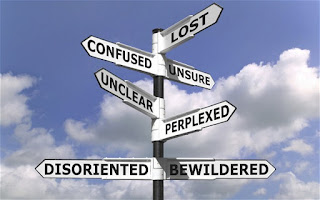Unhealthy Nation is a Poor Nation
Aim: The aim of this article is to show that health does have a positive and significant effect on Wealth Creation and thus “Economic Growth”.
Introduction: “Health is Wealth” and “Wealth is Health”. Health and Wealth has intricate relationship. It is impossible to generate economic growth in the developing world without solving the health problem, and we will not be able to improve health without generating economic growth.
Unhealthy Nation tend to be poor and poor nation tend to be unhealthy. Various studies have attempted to identify the determinants of economic growth. Health is argued as one of the key determinants. Surveys consistently show that good health is the number one desire of men and women worldwide. People like being healthy, and so better health means better well-being. Material well-being is the second cause of human concern.
Human Capital has unlimited growth potential. Sustained growth depends on levels of human capital. Health is the most important component of human capital when it comes to affecting aggregate economic growth. The role of human capital is almost universally regarded as being indispensable to the engine of economic growth. Until the second half of the 1990s the role of human capital was, in the main, linked to education, although now it has been recognized the importance of other factors such as health and nutrition.
Health is a kind of human capital as well as an input to producing other forms of human capital. Being unhealthily depresses the ability to work productively and/or the ability and incentives to invest in human capital. Human capital is the input associated with the human body: strength, brainpower that suggest a direct link between the human body and productivity.
Good health and longevity is fundamental to the human experience. Healthy people are more vibrant, energetic, and have a more positive outlook on life. These characteristics not only translate to a positive influence on the social infrastructure, but also affect economic development. A more highly educated, healthier workforce finds it easier to create, use, and adapt new technologies. Human capital increase as a result of better education, higher levels of health and new learning and training procedures. Every Human Being has equal rights in terms of Life, Liberty and the pursuit of Happiness.
Poor countries have lower levels of human capital and therefore have greater difficulties in competing with developed nations. Without a labour force with the minimum levels of education and health, a country would not be capable of maintaining a state of continuous growth.
The effects of human capital variables imply that the investment rate tends to increase as the levels of education and health rise. Education is also a factor that can help improve human skills and, therefore, productivity and economic growth.
Poor nations of the world have problem of malnutrition, Anaemia, Poor hygiene. These facts lead to a natural question: does disease hold back development? It seems possible that it would. There may be other factors like poor infrastructure, bad and inefficient govt. Many other possible factors have been proposed by economists, and observers worldwide, to be the determinants of growth: from technology to openness, to macroeconomic stability, to the rule of law to democracy.
Poor health directly reduces psychological well being by generating pain and suffering. Without Physical and psychological wellbeing one cannot channelize or unleash human potential. In other words, health has a direct effect on the quality of labour.
Both Health and Economic Growth are fundamental determinants of the human right to “life& Liberty”: Poor health obviously shortens human life, but so does economic poverty. unhealthy citizens do not have the freedom to move, work and make free decisions, and neither do poor citizens. Both Health and Economic Growth are fundamental determinants of the possibility to pursue happiness
Effects of childhood health on adult income. Poor health in childhood might depress the formation of human capital. Person’s physiological and cognitive development happens in childhood and Childhood is thus a key period for human-capital building, and the burden of disease in childhood could have effects that persist throughout the life course. Early-life health might also affect adult productivity because of nutrition
Early-life health could depress human capital and thereby reduce lifetime income. Sick kids weigh less, are shorter, have lower brain capacity. Deficits in iron and vitamin A are found to be associated with deficits in brainpower, and all of this tends to lower future productivity and wages. Poor health affects the productivity and growth of a family’s, a society’s or a nation’s income by affecting education, which is another component of human capital. Sick kids tend to miss school more often so they get less education, which again, tends to make them poorer in the future. which might be more a sign of the poor quality of education than of the small effects of health improvements on human capital. Low life expectancy tends to reduce the rate of return and, as a result, the incentives to educate and accumulate human capital. infant mortality is highly correlated with the probability of social instability
Parents, who know that their children are very likely to die early will tend to have many kids in order to end up with some adult descendants. The problem is that the budget constraint ends up binding and the amount of resources they can devote to each child is lower so each child ends up with lower education and human capital. Parents, therefore, substitute quality of children for quantity of children.
Even if a person is perfectly healthy as an adult, damage from childhood disease may be hard to undo. Most of a person’s human-capital and physiological development happens early in life.
Productivity impact of improved nutrition in developing countries, From conception through infancy and childhood and into adolescence and adulthood. These gains may operate through many channels by stimulating increases in cognitive development, physical stature and strength, earlier school enrolment and more regular school attendance, and in adult productivity. There is a consequent saving in resources that would otherwise go towards dealing with disease and problems related with malnutrition. Finally, the possible gains from different nutritional policy strategies and the policy bases for adopting such strategies are also examined. Their study supports the use of nutritional policy to attain better pro-poor distributional goals by helping to make individuals from poor families more productive over their life cycles.
Good health also promotes regular school attendance and optimizes scholastic performance. Healthier individuals have higher life expectancies and, as a consequence, have greater incentives to invest in improving their life skills since this investment will be likely to have a longer lasting impact.
This means that lifetime income may rise because childhood health allows you learn faster and grow up stronger.
Poverty Affects Health: Poverty has adverse consequences on health through many different channels. First, and most poor people do not have the material resources, the money necessary to buy health care: they cannot afford prevention before the disease appears and they cannot afford doctors and medicines once the disease has appeared. Thus, poor people are more likely to be unhealthy than rich people. In sum, there is a variety of mechanisms that explain how poverty and economic underdevelopment cause poor health.
Effects on Physical Capital The second set of channels through which health affects output, income, productivity and, ultimately, growth operates through the accumulation of physical capital, Citizens who expect to live long after retirement tend to have strong incentives to save and invest. If life expectancy happens to be close to 60 years of age, people do not expect to live many years in retirement and, as a result, their incentives to save are greatly reduced. Thus, through its adverse effect on life expectancy, poor health will tend to reduce national savings and investment. A second effect on physical capital comes from the complementarities across inputs. If human capital is complementary to physical capital, then there is little incentive to invest in physical capital when human capital is low. In other words, firms do not want to invest in countries where the labour force is unhealthy, uneducated. The effect of health on physical capital can also be found through public investment: governments of countries with widespread epidemics see their budgets so stressed by health outlays that they have to stop investing in physical infrastructures. Public capital slowly deteriorates and this reduces the rate of return of complementary private physical capital. This in turn, lowers the incentives to invest in both human and physical capital.
Poverty trap: The financial stress that illnesses cause on poor or even middle income families can have disastrous consequences that spilled over to the next generation. And the worst is that the next member of the family to become ill will have to go untreated because now they really have no money. The cost of curing an illness is some times so large that its financial consequences are felt by the family long after the illness is gone. This leaves them with a small productivity, small output and small ability to grow. To promote health, we need to work on two main fronts: micro actions and macro actions. At the microeconomic level, we need widespread vaccination programs (we have eradicated smallpox, nearly eradicated polio and making progress in measles; we need to continue in this direction), we need to invest in hospitals, doctors and general care. We also need to keep making progress in making clean water and sanitation more widely available. At the macroeconomic front, we need to provide the incentives to invest in pharmaceutical R&D.
Investment in Education Sector: We need to create the environment where individuals have the incentives to get educated and all of this, needs to be done by keeping in mind that poverty reduction is crucial: if the poor do not participate in the process of welfare improvement, all programs are likely to collapse. But most of the effort will have to be undertaken by the political and economic leaders of the poor countries themselves. Their governments need to be less corrupt, more transparent and more accountable The problem is that the decisions need to be made by the political and economic elites. And as, you know from the experience of smokers, the doctor can tell you that you need to quit smoking. The government may finance programs for you to quit smoking. But at the end of the day, if you don’t want to quit, you will be unable to quit smoking.
Public Health and Primary Care, together with basic education and preventive health care should be paramount. Investing in health is much more than to spend on health care. It needs a fully comprehensive strategy, a well adapted tactic to address health population targets and a more complete agenda to close the gap between efficacy in the laboratory of ideas and effectiveness, in the real world. Health has two parts Preventive and Curative. Achieving Health goals are simple provided Nation work with focussed approach. Preventive is cheaper than curative. For Economic Growth Govt. and Citizens must focus on preventive Health Care, Yoga, Ayurveda, meditation, Healthy lifestyle, and good routine.
Scope and structure Recently, the field of health economics has given rise to an increasing amount of research that has focused on the relationship between health levels and economic growth. In a world, in which the socio-economic differences between nations are becoming increasingly pronounced at an alarming rate, it is imperative to reach a deeper, rigorous understanding of the causes of these changes and to be able to analyse the dynamics that take care of Health, Human Capital, and Economic Growth.
Health transition can help a country switch from a neoclassical growth regime to a modern growth regime. It suggests that health policies in developing countries can have important consequences for long term growth and not only for immediate well-being of the population. Policies aimed at generating economic growth should combine education and health policies since rising life expectancies lead to increases in investment in education and longer more complete periods of schooling. Economic inequality and the implications for the health and well-being of the population are manifold.When people get richer, they invest more in their own health, and exhort their governments to spend more on public health. The correlation between health and income might be one of circular and cumulative causation: health affects income and income affects health and so on.
Conclusion Human capital accumulation is still the ultimate source of growth. The fact that health and economic development are so closely related and mutually “caused” suggests that we cannot solve one problem without simultaneously solving the other. If the mutual causality between health and education incentives is true, introducing a good education system will not have any effect unless we increase health and life expectancy because kids will have no incentives to attend school. And the reverse is also true: solving a particular problem health will not help much if the people who receive the intervention remain under the poverty thresholds, because this will keep the chances of them becoming ill with some other disease. Hence, our actions need to simultaneously attack the problems of poor health and poor economic conditions.
Good health is a crucial component of well-being. It seems to be a logical assumption that good health raises human capital levels and therefore the economic productivity of individuals and a country`s economic growth rate. Better health increases workforce productivity by reducing incapacity, debility, and the number of days lost to sick leave, and reduces the opportunities an individual has of obtaining better paid work. Further, good health helps to forge improved levels of education by increasing levels of schooling and scholastic performance. healthier workers are less susceptible to disease, more alert, and more energetic and are consequently more productive and command higher earnings. The literature on Health Economics and economic growth has shown the importance of the improvements of health in populations to reduce poverty and inequality in less developed (LDC) countries
Ms. Indu Aggarwal
Co- Founder Disha For Success


